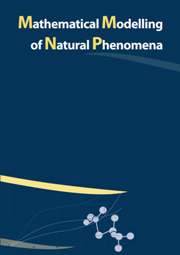No CrossRef data available.
Article contents
Spectral Properties of Schrödinger-type Operators andLarge-time Behavior of the Solutions to the Corresponding Wave Equation
Published online by Cambridge University Press: 28 January 2013
Abstract
Let L be a linear, closed, densely defined in a Hilbert space operator,not necessarily selfadjoint. Consider the corresponding wave equations
 (1) ¨w+Lw=0, w(0)=0, ẇ(0)=f, ẇ=dwdt, f∈H.(2) ¨u+Lu=fe−ikt, u(0)=0, u̇(0)=0,
(1) ¨w+Lw=0, w(0)=0, ẇ(0)=f, ẇ=dwdt, f∈H.(2) ¨u+Lu=fe−ikt, u(0)=0, u̇(0)=0,
where k > 0 is a constant. Necessary and sufficient conditions aregiven for the operator L not to have eigenvalues in the half-planeRez < 0 and not to have a positive eigenvalue at a given point kd2 > 0. These conditions are given in terms of the large-timebehavior of the solutions to problem (1) for generic f.
Sufficient conditions are given for the validity of a version of the limiting amplitudeprinciple for the operator L.
A relation between the limiting amplitude principle and the limiting absorption principleis established.
Information
- Type
- Research Article
- Information
- Mathematical Modelling of Natural Phenomena , Volume 8 , Issue 1: Harmonic analysis , 2013 , pp. 207 - 214
- Copyright
- © EDP Sciences, 2013

